What is Physiotherapy?
Physiotherapy helps individual to improve, maintain, and restore functions to achieve optimal health.

Physiotherapy provides services to individuals and the public suffered from problems relevant to ageing, injury, pain, illness, physical disorders and environmental factors, by helping them to improve, maintain, and restore functions to achieve optimal health.
Physiotherapy intervenes in the physical, mental, social and spiritual aspects of each individual, through implementation of education, promotion, prevention, treatment, and rehabilitation, to establish and to enhance quality of life and potential for different activities.
Physiotherapy is also an interactive process in which physiotherapists, upon assessing the activity potential and performance of their patients / service users, would apply unique professional skills and knowledge to achieve common service goals with patients, family members, caregivers, communities, and other medical professionals.
Physiotherapists
are qualified professionals with the following duties:
- Comprehensively assess the treatment needs of patients and service users
- Evaluate patients and make relevant physical diagnoses and prescriptions
- Explain the physical diagnosis, prognosis and intervention/treatment plan
- Implement physiotherapy treatment and interventions
- Recommend a self-intervention plan to empower the patients and service users
- Provide professional advice and make timely appropriate referral to other medical professional services when necessary
- Reassess and review the effectiveness of prescribed interventions/treatments

Equipped with and based on the thorough understanding of requirements and potential of different human functional activities; physiotherapists formulate physical diagnosis and treatment strategies for their clients, with respect to their immediate environment or their involvement in different professional fields through health promotion, injury prevention, interventional therapy, home rehabilitation, etc.
Physiotherapy is also involved in the following areas:








Physiotherapists, who have completed the accredited undergraduate or post-graduated physiotherapy program compiling to the ethical principles established by the 'World Physiotherapy', are practising as part of a medical team or independently. They are capable to access their clients as the first contact practitioners.
Physiotherapy
What is its application?
Physiotherapy, which is essential for public health and social services, helps disease prevention and functional improvement/maintenance through independent practice or a rehabilitation team, thus ensuring the quality of life.
Physiotherapists
comply with the established code of ethics to achieve the following goals:
- Advocate the significance of physical exercise to promote personal and public health
- Prevent disability or restriction in mobility with respect to health, economic, environmental and other related issues
- Provide treatment for the injured or disabled aiming to minimise restrictions in mobility caused by disability, to reduce dysfunction by restoring function, to improve the self-care ability for a better quality of life
- Improve the barrier-free facilities at home, at work and in the community, as well as promote the social roles of individuals with disabilities


Physiotherapy
What are the key features of Physiotherapy?
-
Physiotherapy is a non-invasive, non-medicated professional therapeutic measure.
-
Physiotherapists could serve various groups with special conditions in the community (e.g. scoliosis screening for children, fall prevention programs for the elderly, etc.).
-
Physiotherapy is based on a holistic approach through mutual understanding and compromise developed between physiotherapist and their clients or caregiver, enhancing not only physical health, but the positive transformation of behaviour, and thus achieving the ultimate goal to promote health in every aspect.
-
Physiotherapists who practise with professional autonomy are capable to make physical diagnosis which
guides the treatment and rehabilitation process for their clients.
-
Physical diagnosis is the identification of patient's existing or potential disabilities, restrictions in activity level or limitations in participation through clinical examination and assessment. The physical diagnosis guides the physiotherapist in the determination of prognosis and appropriate treatment strategy, and assists in their communication with patients. Physiotherapists may need to obtain additional information from other professions during the diagnosis process. If the potential diagnosis is found to be beyond the professional scope, experience or expertise of the physiotherapist, they will refer the patient to other appropriate professions.
-
Exercise is an essential element for health. Physiotherapists prescribe exercises to achieve the compromised treatment goals with their clients and the public to enhance their potential in functional performance.
-
Physiotherapists respect the autonomy and legality of their clients.
-
Physiotherapists also interact with other healthcare team members, and coordinate with the relevant administrative and regulatory bodies for advice and consultation on appropriate public health regulations and strategies.

